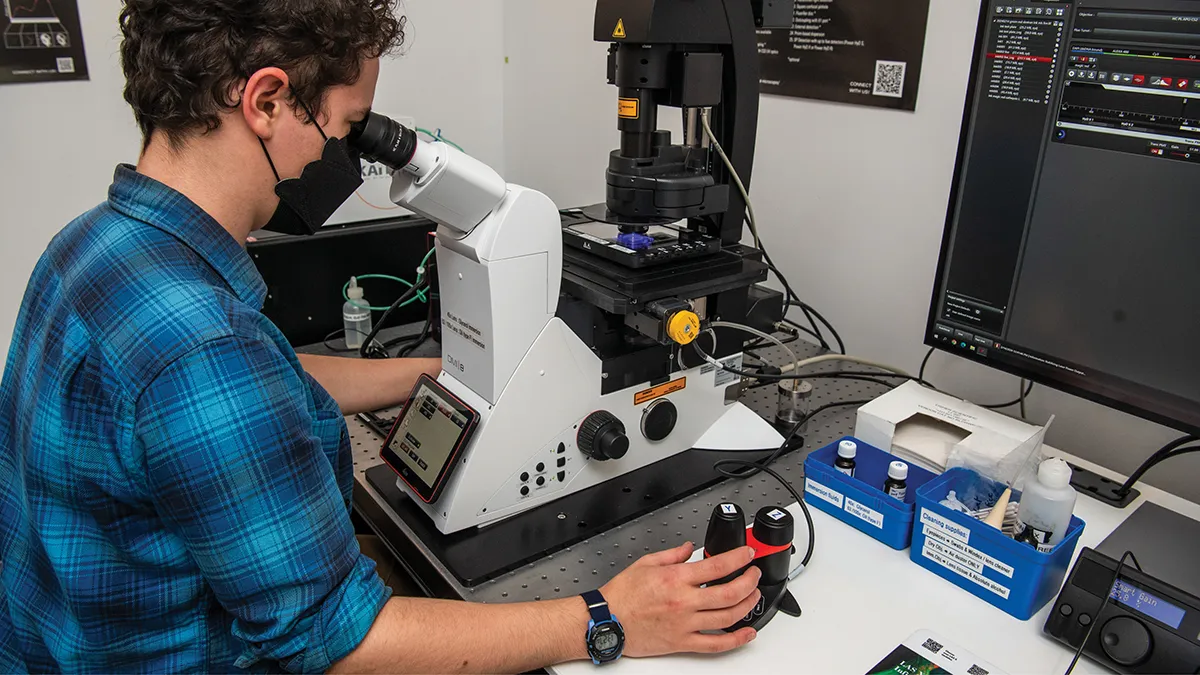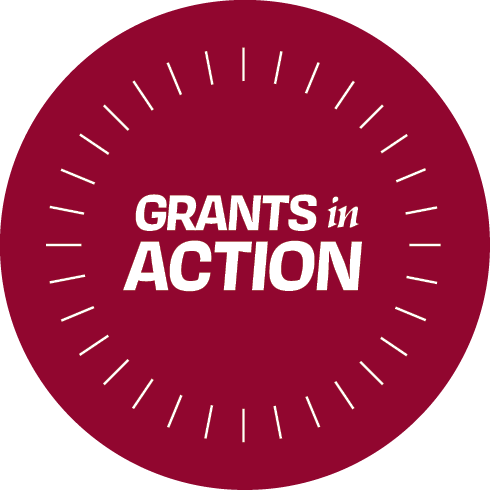

Kelly Marsh
New Microscope an Eye-Opener for Student Scientists
Levitt is one of several students who have undergone training with the Leica Stellaris 8, a next-generation confocal microscope that members of the science faculty say will greatly enhance research opportunities at Vassar and other nearby colleges. The microscope was delivered to the College in December. Training sessions for students and faculty, overseen by the Biology Department’s Science Technology Support Technician David Lewis, are expected to continue throughout the Spring Semester.
Associate Professor of Psychological Science Hadley Bergstrom, who co-wrote the NSF grant application, said he is already using the microscope to study cells involved in memory storage. “It gives us much brighter images with much higher resolution,” Bergstrom said, “and we get the results in about eight minutes, compared to more than an hour with our previous microscope.”
Under the terms of the grant, Vassar is sharing the use of the microscope with science faculty from other local colleges. Megan Dennis, an Associate Professor of Biology at Marist College, was among the first to be trained in its use. “I’ve already begun to use it for my own research, and I plan to bring some of my students over to Vassar later this spring to show them what it can do,” Dennis said.
Nancy Pokrywka, Professor and Chair of Biology, said she was looking forward to using the new microscope when she teaches the course Cellular Structure and Function. “The students work in teams, and I guide them through the use of the confocal to get high-resolution images of Drosophila [fruit fly] ovaries for their projects,” Pokrywka said. “They produce some truly beautiful data, and I look forward to using the new confocal in this fashion the next time I teach the course.”
Bergstrom said he’s certain the new microscope will get plenty of use, noting 12 faculty members in five Vassar science departments had taken part in applying for the NSF grant. “We are all still learning about all the things it can do,” he said. “It will probably take us a couple of years to fully utilize it.”